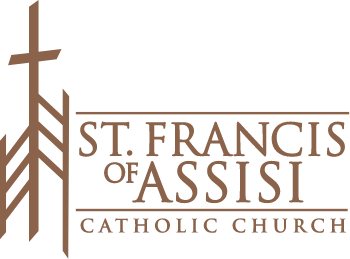The Prodigal Son had lived a life safe, protected, loved. He had an inheritance to come, but the patient endurance to reach that inheritance was lacking. Because of pride and greed, he thought he could do better than the life his father had given him.
After he had spent his entire inheritance, a famine hit. He was feeding pigs and starving, and he remembered the life his father gave his servants; even they had enough. He went back hoping to have a position merely as a slave. The son had known a full relationship with his father. His failings drove him to think there was something greater. When all was stripped away by his own hand, he remembered that relationship. He longed for what he once had.
Meanwhile, the father had been waiting, preparing, watching for his son. He didn’t hold on to what his son had done. Instead, he longed to have the relationship restored. And when he saw him, he ran to him, holding nothing back. He embraced him, welcomed him back into the family, into right relationship. His mercy wasn’t contingent on anything the son had to do. The son only had to turn around and fix his gaze back on the father.
This is Reconciliation. We bring to our heavenly Father our shortcomings, how we failed to love completely, how we could have done better. Our Father welcomes us into that restored relationship. All we must do is turn back toward Him. He is waiting for our return and wants to rejoice at our coming home. He wants to celebrate. What is required? A contrite heart postured toward Him with a desire to change.
There is a saying, “A body is only as strong as its weakest member.” When we have sinned, we are weakening the whole body, whether we acknowledge it or not. The body longs to have its members healed. There are five precepts of the Church that represent the bare minimum for moral living. As early as the fourth century, these were seen as the norm for Christians. Receiving Reconciliation and the Eucharist at least once a year were two of these precepts. CCC 1857 states we are to confess mortal sins at least once a year. This is to help keep the entire body whole. A mortal sin is one involving a grave matter that you had full knowledge of and gave full consent.
Why go to a priest?
In John 20:23, Jesus said, “‘Peace be with you. As the Father has sent me, so I send you.’ When he had said this, he breathed on them and said to them, ‘Receive the Holy Spirit. If you forgive the sins of any, they are forgiven them; if you retain the sins of any, they are retained.’”
Through Jesus, the Apostles were given the authority to forgive sins. The priest, in “Persona Christi” (the person of Christ) has this authority handed down from Jesus. Through the priest, Jesus is forgiving sins and giving absolution.
Many times we struggle with the same sins. This is part of our human nature. In the Sacrament of Reconciliation, also called Confession, we receive supernatural grace for those sins we have brought to Jesus. If you struggle with the same sins, this is one of the greatest ways to gain extra strength only He can provide. This is why even going regularly to confess venial sins is of great importance in our spiritual life.
We are both body AND soul. Jesus knows this. This sacrament speaks to our bodily faculties … we can hear we are forgiven as Jesus speaks these words of absolution through the priest. This act of hearing is of key importance to us as humans. This is why speaking the words “Do you forgive me” and “I forgive you” means so much in our relationships. In Reconciliation, we hear Jesus speak the words.
Confession gives an opportunity for receiving spiritual advice and guidance specific to your struggles. Sometimes this can be lacking as priests want to make sure as many souls as possible receive absolution in a limited amount of time. If you are at a point in your spiritual life where this is something you desire more of and don’t receive in Reconciliation, I encourage you to seek a regular confessor. This is often someone who you also see for spiritual direction.
We receive penance at the end of the Confession. This is opportunity to show that we want to walk the changed life, we want to put in the effort to remain closer to Him. This is a step toward building habits to grow closer to Him; it isn’t a punishment but an aid in strengthening our spiritual muscles.
Another beautiful aspect of the sacrament involves righting relationships. When we sin, we not only damage, or even sever, our relationship with God, but we also damage the relationship with other members of the Church. In Reconciliation, God restores the vertical relationship with Him, but He also has the power to restore the horizontal relationship with others. This builds the body back up. If it has been a while since you have last been to Confession, just tell the priest. He would be happy to walk you through it.
As a final note, I once heard a priest apologize to me and a group of teens on retreat on behalf of all priests for any time someone felt anything but welcomed to this sacrament. Priests, though they are acting in Persona Christi, are still human. Please do not let a previous experience prevent you from coming back. The Father’s desire is to have you return; all you must do is turn back, and He will come running to embrace you.
Christina Brouillette — SFA Theologians Guild Member

